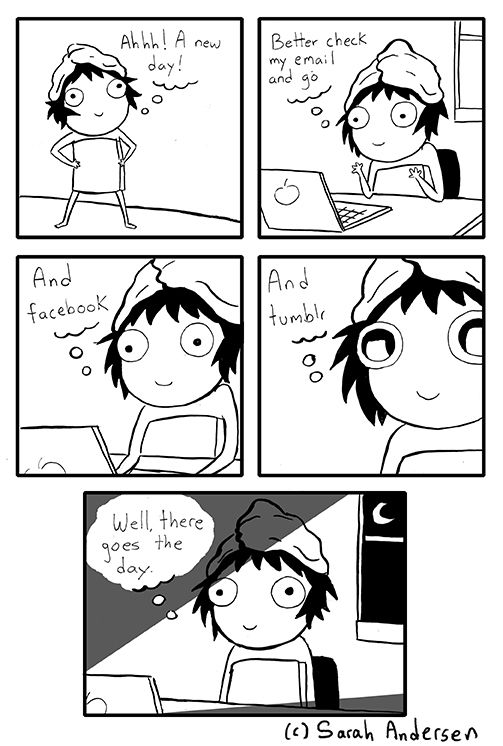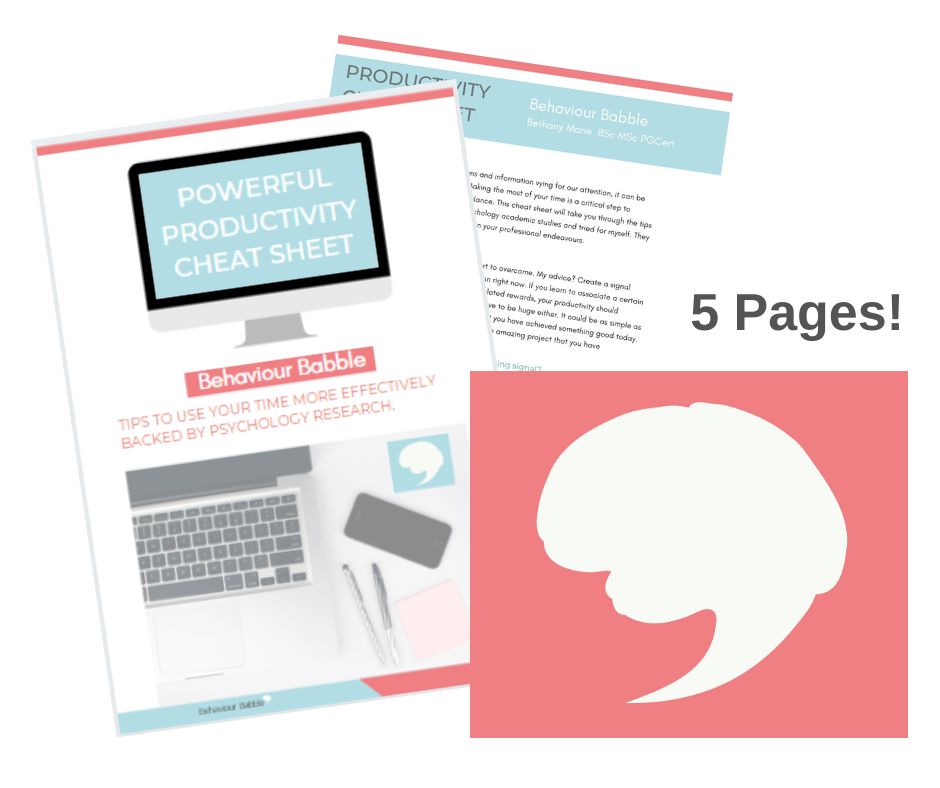Last updated on April 16th, 2020 at 11:33 am
Procrastination (or the art of doing something, anything, to avoid doing what you really should be doing!) is something that most of us can relate to. But why do we do it?
Thinking back to my uni days I remember it was a popular buzz word that was used across many of my student friends, including myself. It seemed that everyone had their own unique method of procrastinating to avoid the unthinkable… revision! Partying every night, organising your room until it was spotless, watching too much TV, even chronic baking! Procrastination was such a commonplace occurrence on campus that you were almost considered uncool if you didn’t mention it every now and again.
Procrastination certainly doesn’t seem like a logical way to behave. Surely we should just stop being so lazy and get on with what we should be doing, be it an exam, an email or the household chores. Then you could enjoy your time both guilt and worry-free. But if things were as simple as that then I’m pretty sure that we wouldn’t have this problem with procrastination in the first place!
So what drives us to procrastinate and keep doing so until our workload becomes unbearable?
The answer lies in what we get out of procrastination, or the consequences of it.
Procrastination, like many other things, is a learned behaviour. We learn to procrastinate because it allows us to postpone or escape from the work that we just don’t want to do. It makes us feel relieved (at least temporarily). When you procrastinate once, you’re more likely to do it again to get that same feeling of relief from postponing work. In behaviour babble terms this process is known as negative reinforcement.
“The behaviour babble”
Negative Reinforcement: When a behaviour is more likely to occur again in the future as a result of the consequences it has been reinforced. Reinforcement is said to be “negative” when your behaviour results in avoiding/postponing/escaping from something that you don’t want.
Let’s break things down with an example…
Miss anonymous has to do a blog post on the weekend. She knows it’s the most free time that she will have available to blog. However, it can be difficult to motivate yourself to write, especially when it’s the weekend! She starts to perform a variety of behaviour such as checking Facebook, replying to interesting but low priority emails and reading books. Before she knows it, the whole weekend has gone by and she hasn’t written a single word towards her blog post!
She continues to do these behaviours throughout the day because they relieve her from writing the blog post (even though she knows that she gets an enormous satisfaction out of blogging when she does sit down to do it). The more she procrastinates, the more this behaviour is reinforced, AKA more likely to happen again. The reinforcement in this case is classed as “negative” in a similar way to the minus sign in maths, because she procrastinated in order to remove something she didn’t want i.e. the ‘overwhelming’ task of writing a blog post.
If you think about it our brains have actually been hardwired across years of evolution to learn to avoid things that we don’t like. Going back to the caveman days you were usually much more likely to survive if you avoided that big hungry lion rather than faced it.
So all in all don’t feel too bad about procrastinating as it’s kinda of bound to happen! But now that you understand more about why it happens you, you can begin to find out how to “unlearn” this behaviour. More on that next time!
A side note: I have painted a rather “negative” picture of negative reinforcement in this post, but actually it can be a really helpful thing! It’s the reason why you pay your rent on time to avoid losing your home and why you put your sunglasses on to avoid the bright rays on a sunny day.
Can you think of any other behaviours that we do to avoid/escape from something we don’t like? Let me know in the comments section below!
Ps: All copyright goes to Sarah Anderson for her hilarious and amazing comic strip. Check the rest of ’em out on her Facebook page!
[contact-form-7 404 "Not Found"]
Beth is forever curious about what makes people tick. She is a master’s degree graduate and former psychology teacher (AKA a proud behaviour nerd!). Autism awareness is a cause close to her heart – check out her fundraiser. Beth becomes her happiest self when she’s helping people like you to enhance your life.
Join our community. Get ahead. Make the most of your time with our free guide!






